On November 11, 2016, the Ritz Carlton Hotel in South Beach opened its doors to the First Annual Miami Ball,
“A Russian Cultural Event”!
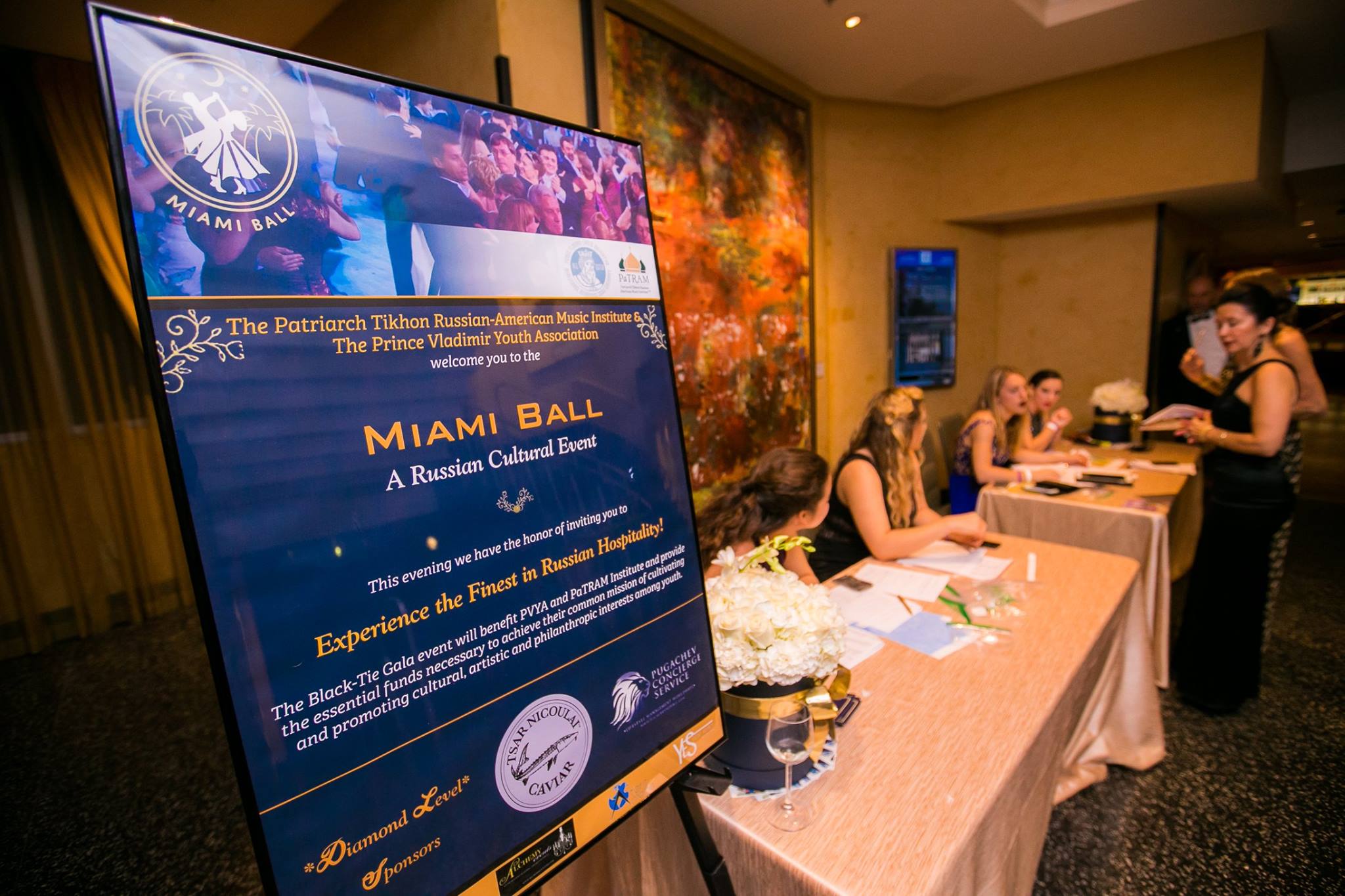 The event was a fundraiser co-hosted by two non-profit organizations, the Patriarch Tikhon Russian-American Music Institute (PaTRAM) and the Prince Vladimir Youth Association (PVYA). Both organizations are deeply committed to our youth maintaining and expanding their cultural, artistic, philanthropic and religious interests.
The event was a fundraiser co-hosted by two non-profit organizations, the Patriarch Tikhon Russian-American Music Institute (PaTRAM) and the Prince Vladimir Youth Association (PVYA). Both organizations are deeply committed to our youth maintaining and expanding their cultural, artistic, philanthropic and religious interests.
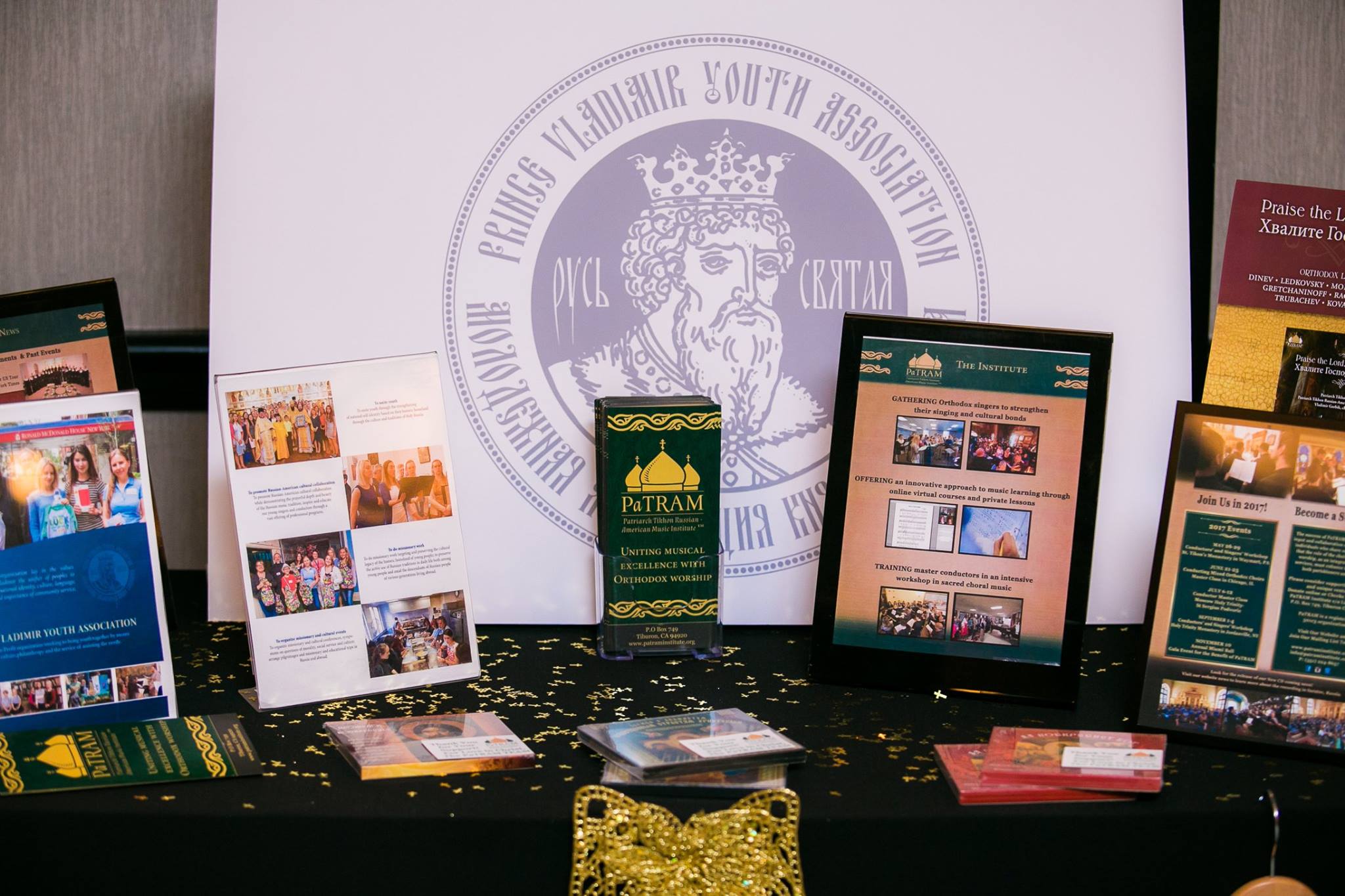
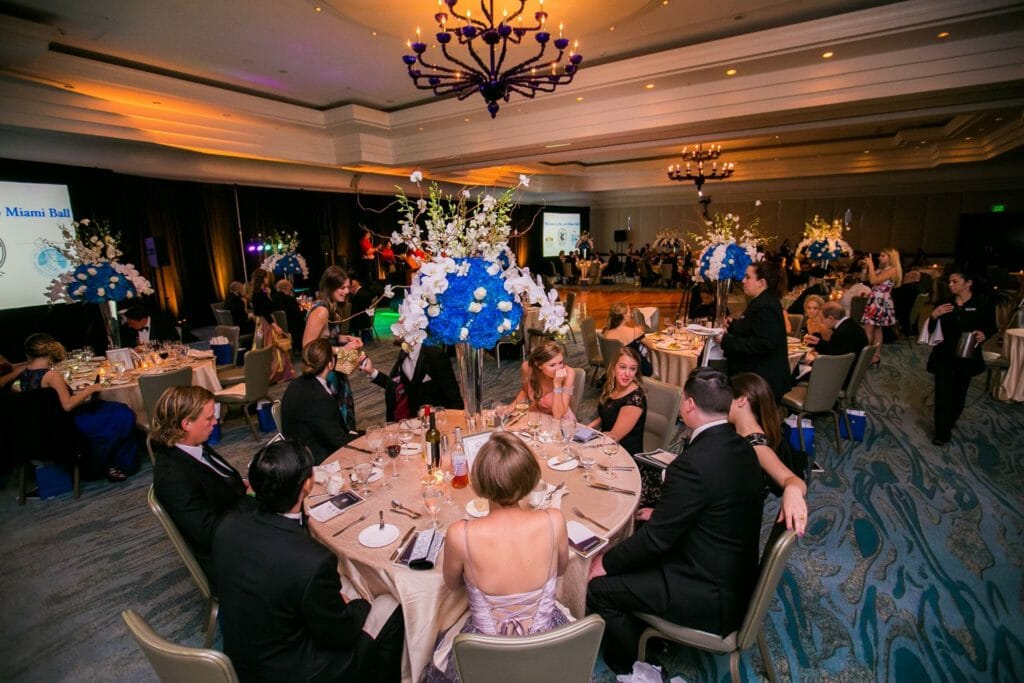 This black tie/evening gown affair featured cocktails, dinner, entertainment and dancing, was everything a night out could possibly provide. The Miami Ball was attended by almost 200 people including clergy from the local Orthodox parishes and His Grace, Bishop Nicholai of Manhattan.
This black tie/evening gown affair featured cocktails, dinner, entertainment and dancing, was everything a night out could possibly provide. The Miami Ball was attended by almost 200 people including clergy from the local Orthodox parishes and His Grace, Bishop Nicholai of Manhattan.
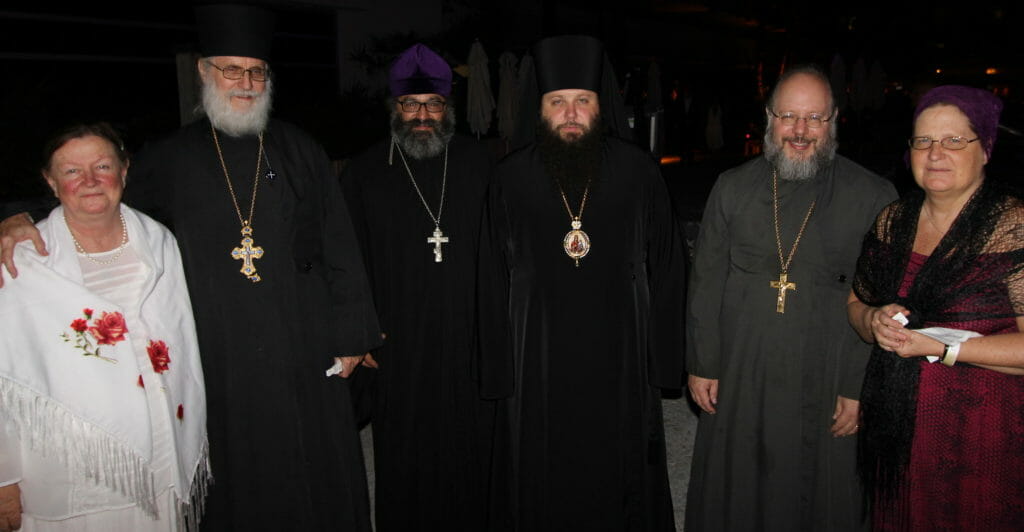
The evening began with a red carpet photo session as each patron was ushered over to the press wall and photographed, sometimes with their spouse, sometimes with their friends and sometimes solo. The resulting photos reflected the joyful beginning to the night’s event.

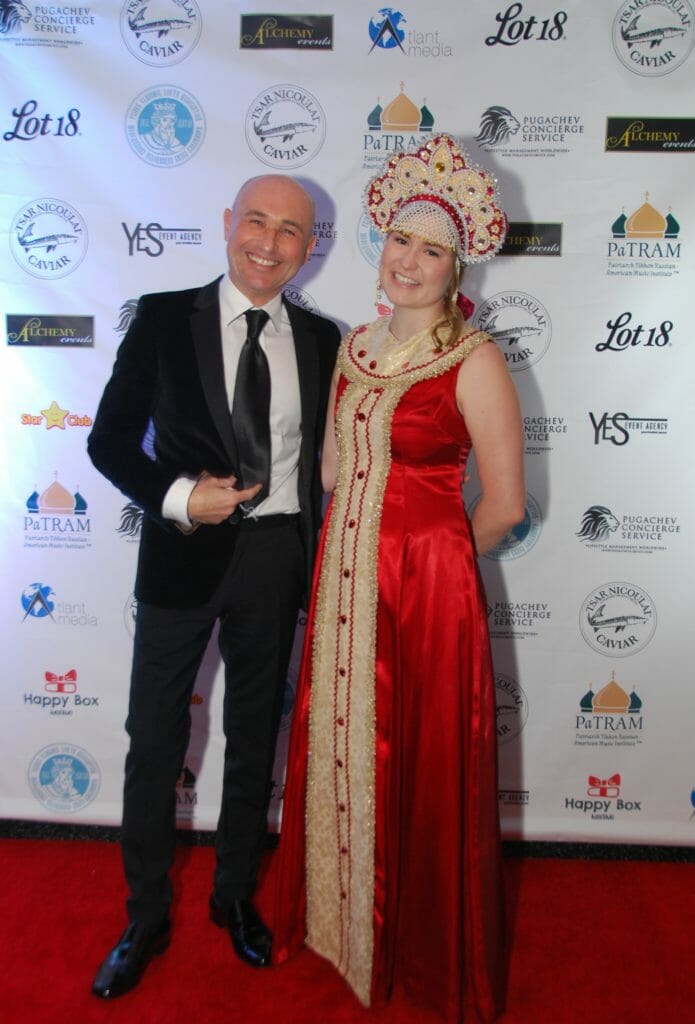
After the photos, patrons were escorted to their respective cocktail hours.
For VIPs, there was a special, pool side reception held outdoors overlooking the Atlantic Ocean. The evening was a bit balmy but not enough to matter to any of the VIPs as they sipped Beluga vodka shots, cocktails and enjoyed caviar and sturgeon provided by the Tsar Nicoulai Caviar Company, the Miami Ball’s exclusive provider of these fantastic delicacies. Xenia Maximova, the Tsar Nicoulai representative (and guest of the Miami Ball), served these exclusive and tasty dishes to all the attending VIPs. Delicious!
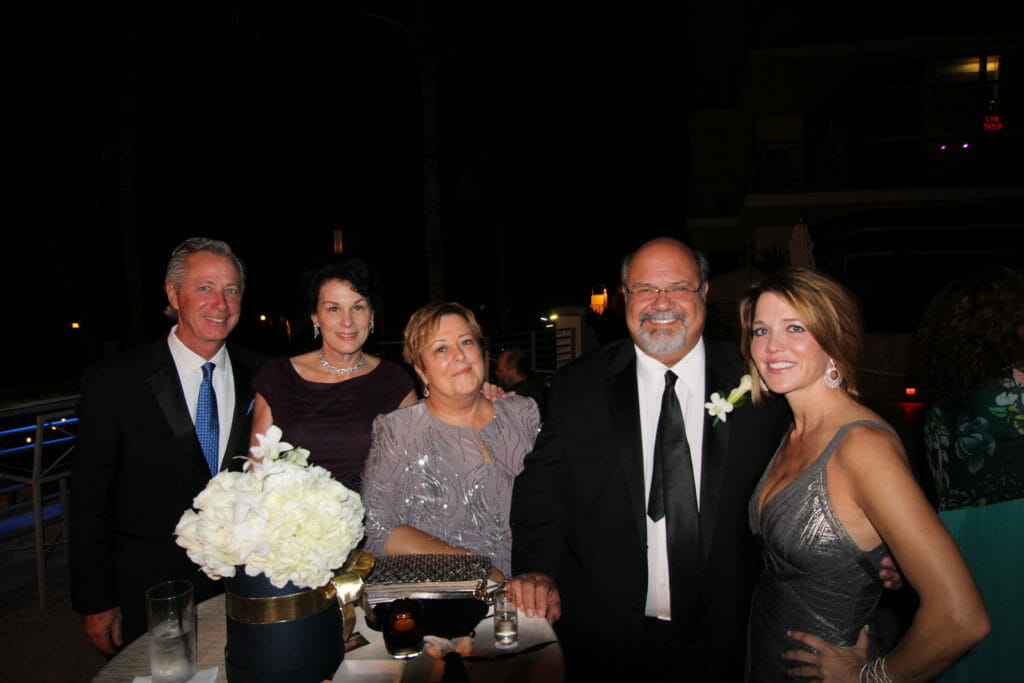
Ms. Maximova even took the time to explain to the VIPs the different ways to enjoy these products and the condiments that accompanied them.
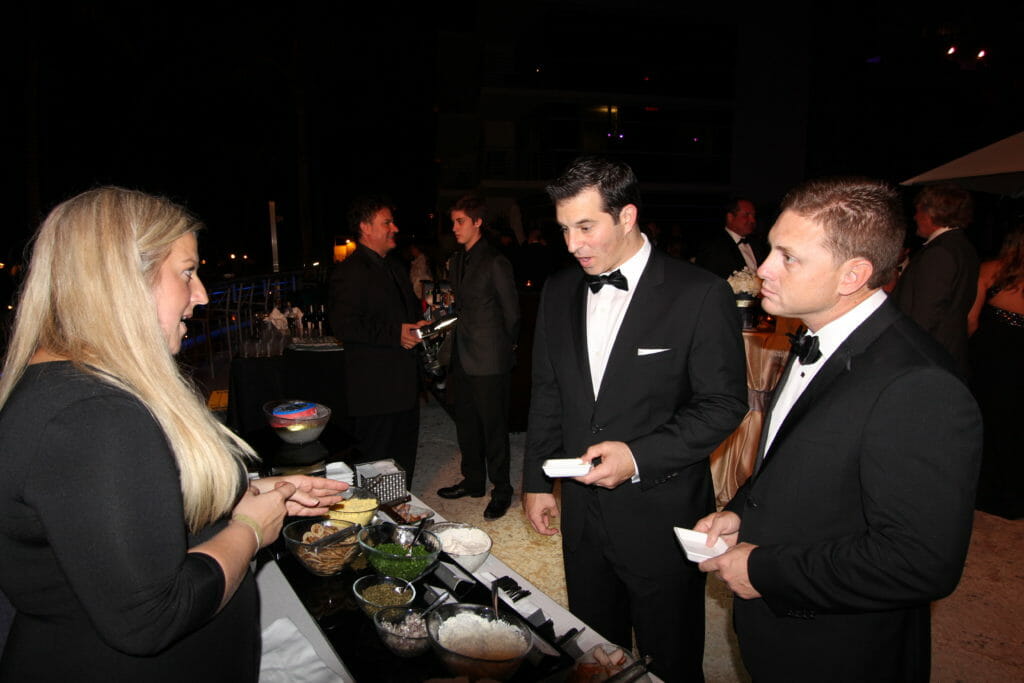 Meanwhile, the remaining patrons assembled in the foyer of the Ballroom to enjoy their cocktails of vodka, other varieties of spirits, wine and beer. The wine, provided by another sponsor, Lot 18, was delicious and served a white blend called “Docheri”, meaning “daughters” in Russian, and even had the famous Russian nesting dolls on the label which really added to the Russian theme of the evening. Tsar Nicoulai provided caviar for this cocktail hour as well which was thoroughly enjoyed by everyone.
Meanwhile, the remaining patrons assembled in the foyer of the Ballroom to enjoy their cocktails of vodka, other varieties of spirits, wine and beer. The wine, provided by another sponsor, Lot 18, was delicious and served a white blend called “Docheri”, meaning “daughters” in Russian, and even had the famous Russian nesting dolls on the label which really added to the Russian theme of the evening. Tsar Nicoulai provided caviar for this cocktail hour as well which was thoroughly enjoyed by everyone.
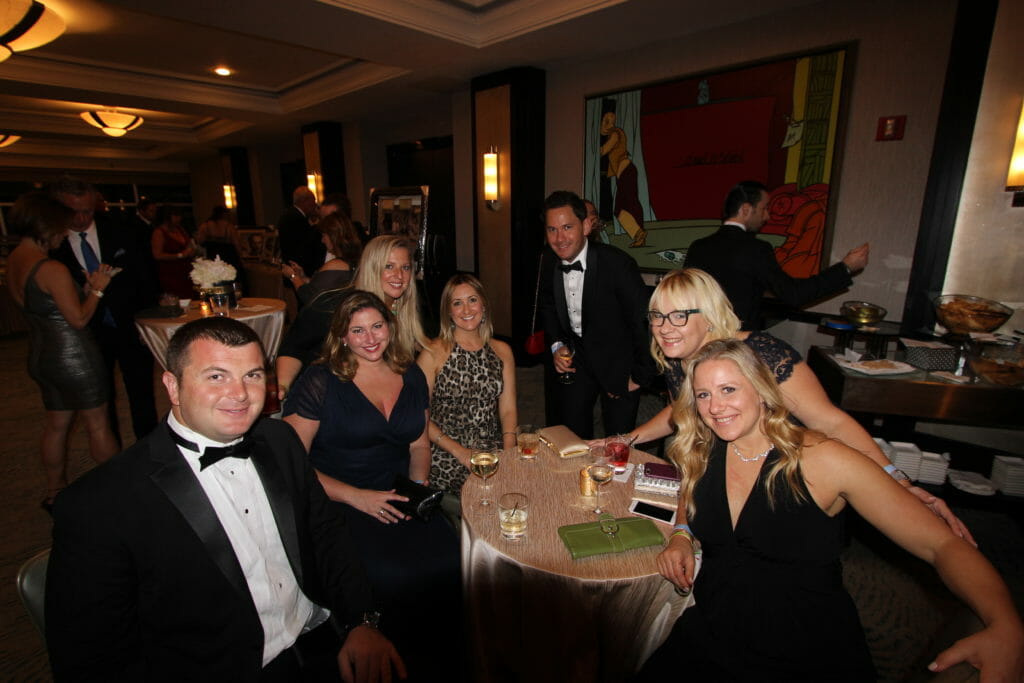
As the cocktail hours ended, everyone moved to the ballroom, as the Barynya band played, and settled into their table assignments for dinner.
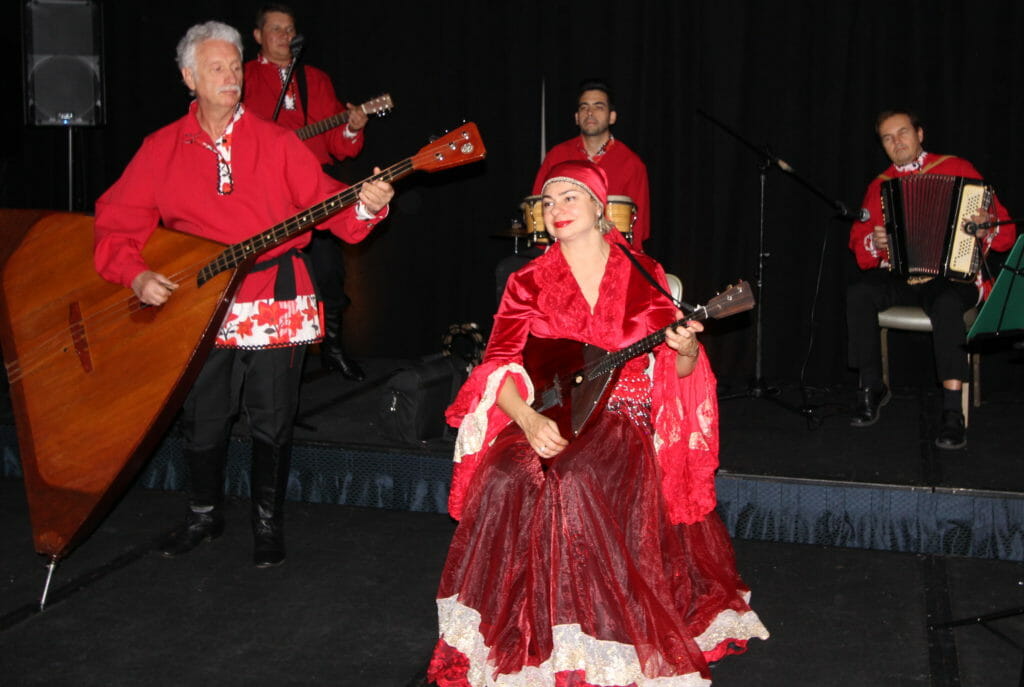
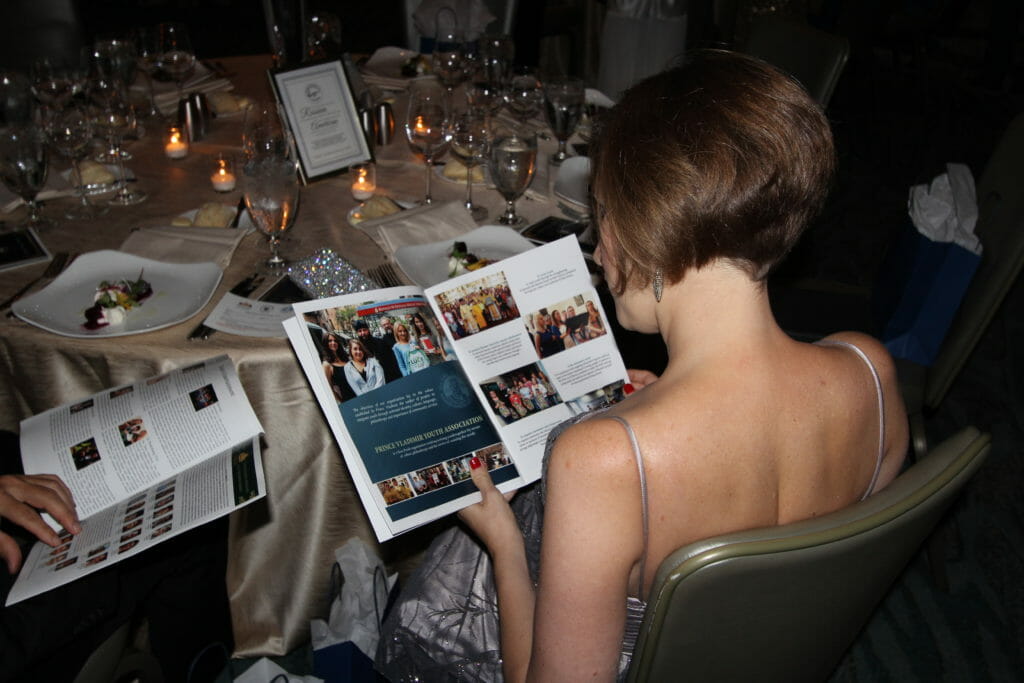 After everyone was seated, the Emcees introduced the two organizations and their histories. Once completed the entertainment began.
After everyone was seated, the Emcees introduced the two organizations and their histories. Once completed the entertainment began.
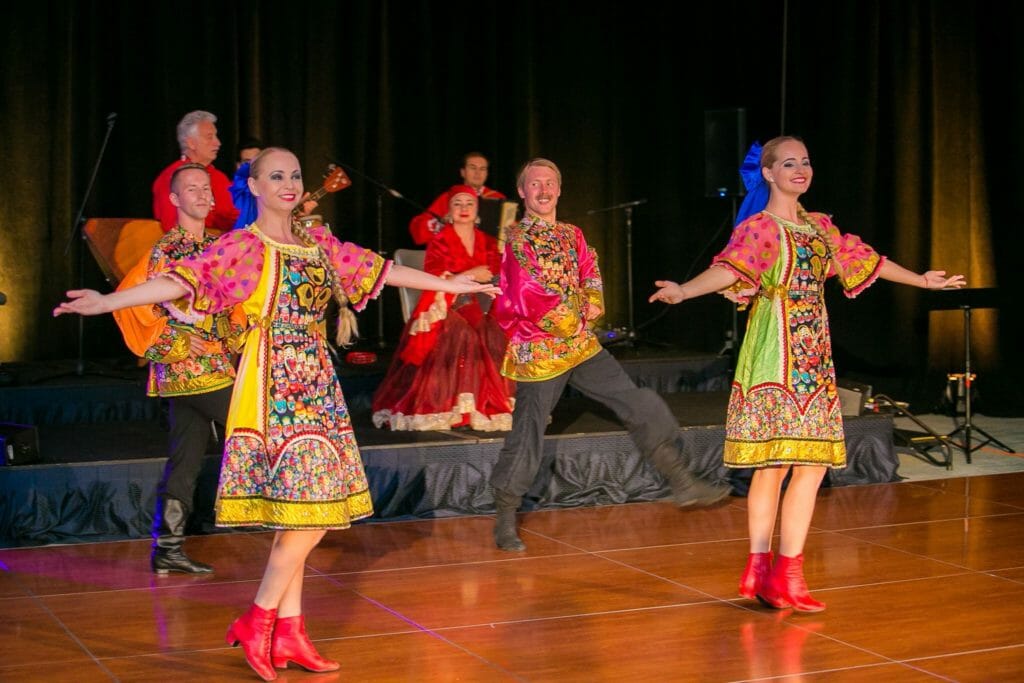
First to perform was Tonia Cianciulli, an accomplished opera singer who also has performed popular music and is a composer in her own right. Ms. Cianciulli performed superbly, acknowledged by the audience in rousing applause. Ms. Cianciulli was joined by Anna Bateman and the two singers performed a duet to close that segment of the entertainment.
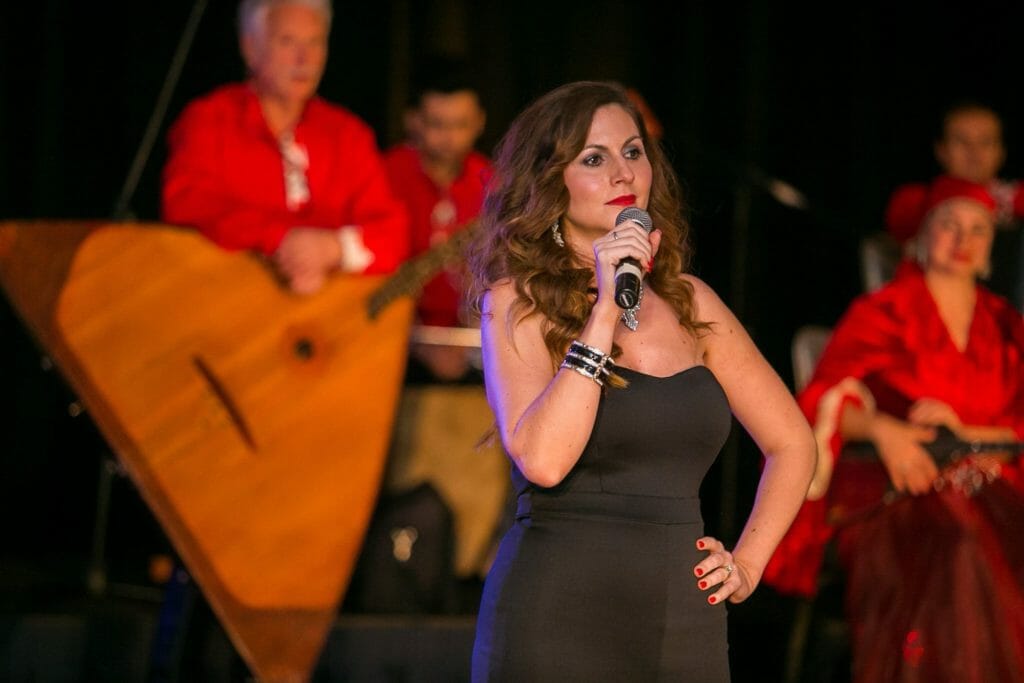 After the arias, Bishop Nicholai led the room in prayer and gave his blessing before the meal. As the dinner continued so did the entertainment when the Barynya dancers took to the floor and gave a sensational performance of traditional Russian music and dance replete with traditional Russian costumes.
After the arias, Bishop Nicholai led the room in prayer and gave his blessing before the meal. As the dinner continued so did the entertainment when the Barynya dancers took to the floor and gave a sensational performance of traditional Russian music and dance replete with traditional Russian costumes.

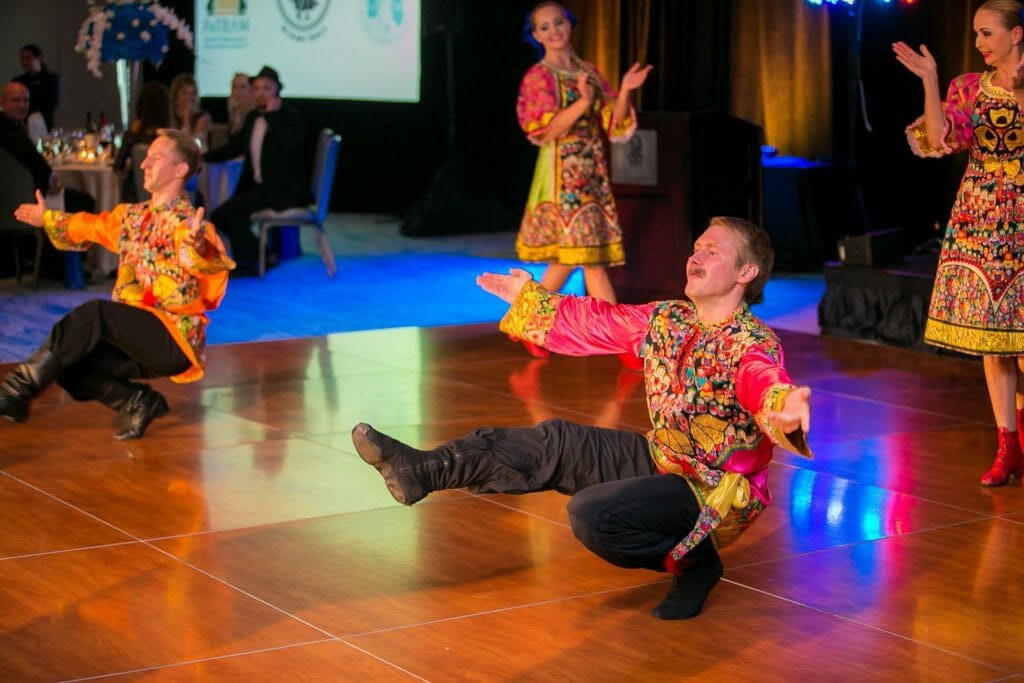
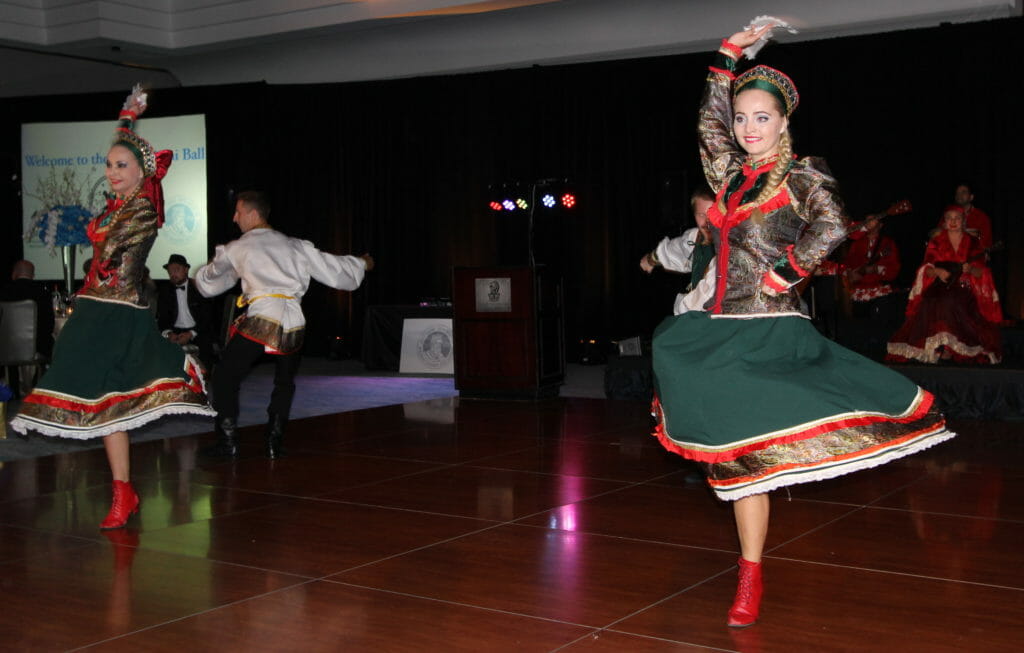 When the audience settled down from Barynya’s exciting dancing, the Emcees introduced another Miami Ball sponsor, Mr. Mark Pugachev, representing Pugachev Concierge Services. This generous sponsor contributed a door prize of a day’s outing for four on a 70-foot yacht (valued at $7000). Mr. Pugachev was asked to pick a table number out of a hat. The chair at the winning table, denoted by a red dot placed on the back of one chair, was Table 6. The lucky chair belonged to Irina Jermihov to whom Mr. Pugachev presented the prize.
When the audience settled down from Barynya’s exciting dancing, the Emcees introduced another Miami Ball sponsor, Mr. Mark Pugachev, representing Pugachev Concierge Services. This generous sponsor contributed a door prize of a day’s outing for four on a 70-foot yacht (valued at $7000). Mr. Pugachev was asked to pick a table number out of a hat. The chair at the winning table, denoted by a red dot placed on the back of one chair, was Table 6. The lucky chair belonged to Irina Jermihov to whom Mr. Pugachev presented the prize.
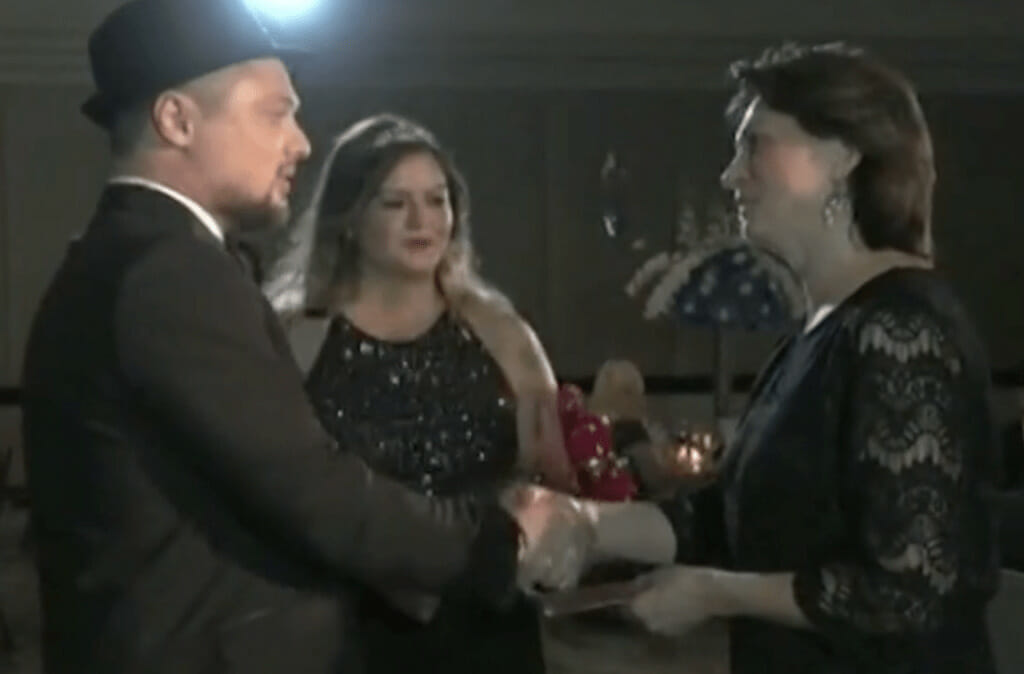
Next came the leaders of the host organizations. PVYA’s Chairman and co-Founder, Father Andrei Sommer’s presentation was first. Regrettably, Father Andrei was unable to attend due to illness. He was instead represented by PVYA’s Vice-President and Secretary, Eli Shikaloff who gave a heartfelt speech wishing Father Andrei well and presenting the efforts of PVYA and how they work with youth and the community.
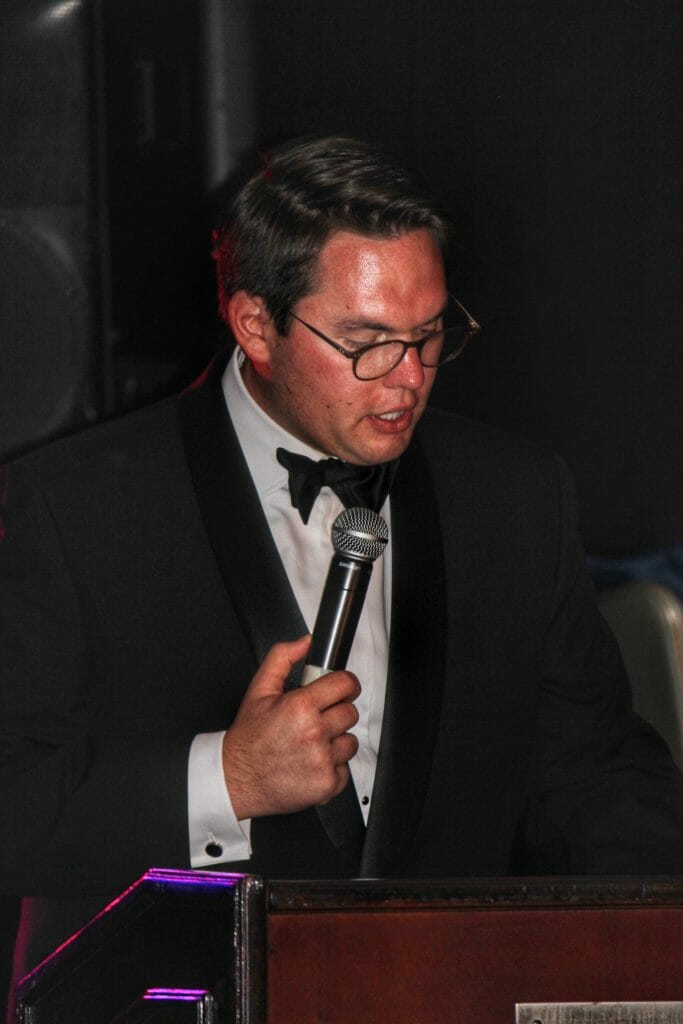
Following Mr. Shikaloff, the Emcees introduced Alexis Lukianov, Chairman, CEO and co-Founder of PaTRAM. Using accompanying slides on two large screens, Mr. Lukianov described to the audience what PaTRAM’s mission entails, a short review of accomplishments and PaTRAM’s future aims.
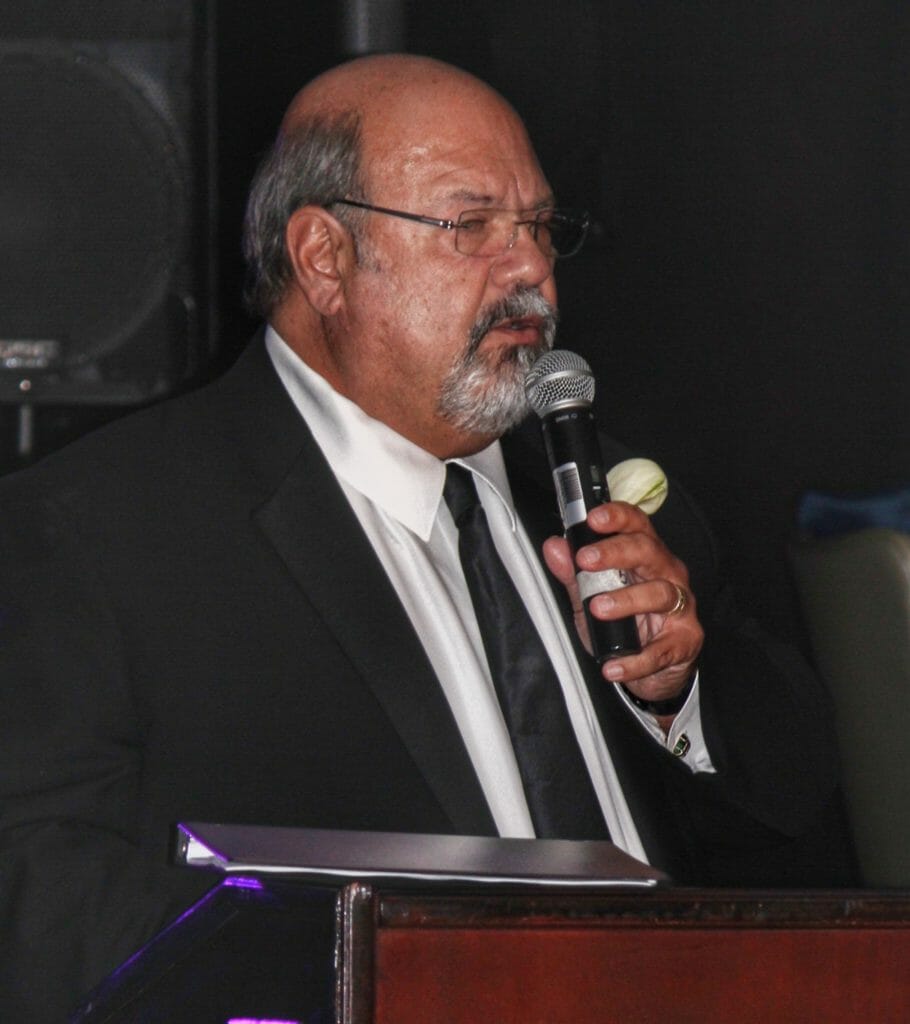
Mr. Lukianov mentioned the efforts of PaTRAM to help singers and conductors which perfectly segued into Mr. Lukianov introducing the highlight entertainment of the evening, the PaTRAM choir.
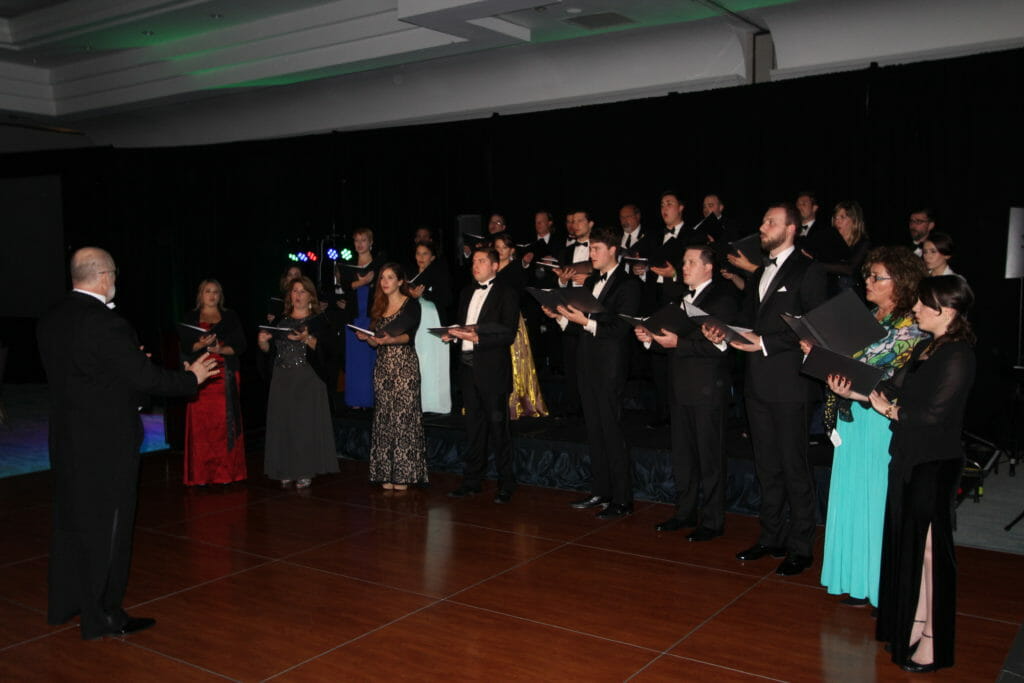 Before joining the Choir as an octavist, Mr. Lukianov introduced Dr. Peter Jermihov, the conductor of the Choir. Maestro Jermihov led the choir through their repertoire with efficiency and grace.
Before joining the Choir as an octavist, Mr. Lukianov introduced Dr. Peter Jermihov, the conductor of the Choir. Maestro Jermihov led the choir through their repertoire with efficiency and grace.
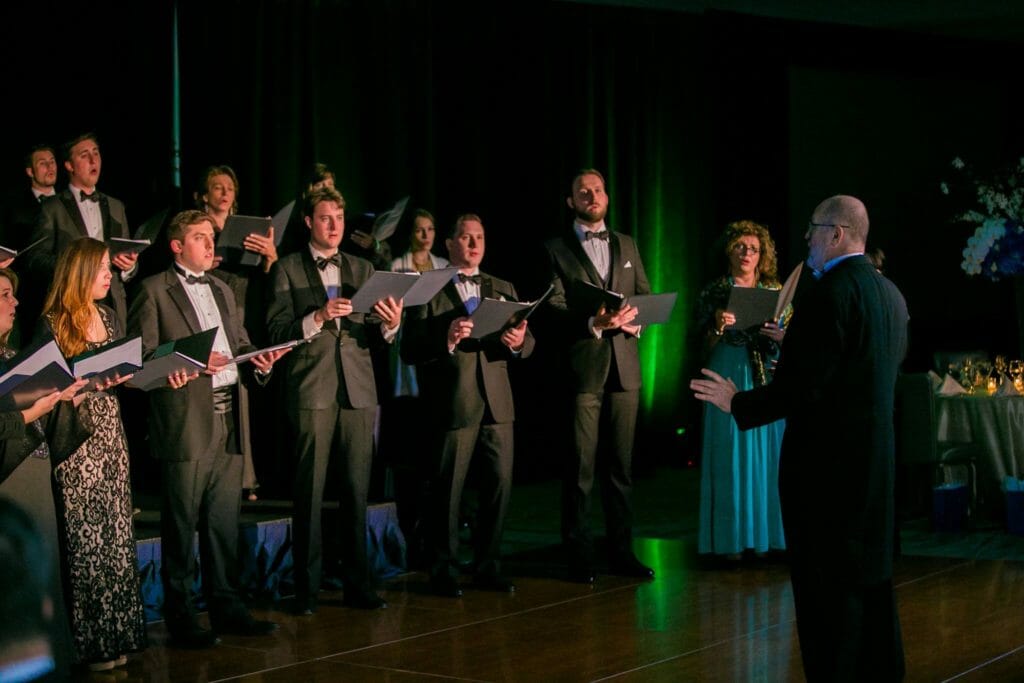 The musical depth of the choir was obvious and the sound clear and bright. Soloists, Fotina Naumenko (soprano) and Pavel Roudenko (bass), both sang beautifully. But the most amazing thing about this Choir’s performance is that they had ONE single rehearsal together earlier that day. One!
The musical depth of the choir was obvious and the sound clear and bright. Soloists, Fotina Naumenko (soprano) and Pavel Roudenko (bass), both sang beautifully. But the most amazing thing about this Choir’s performance is that they had ONE single rehearsal together earlier that day. One!
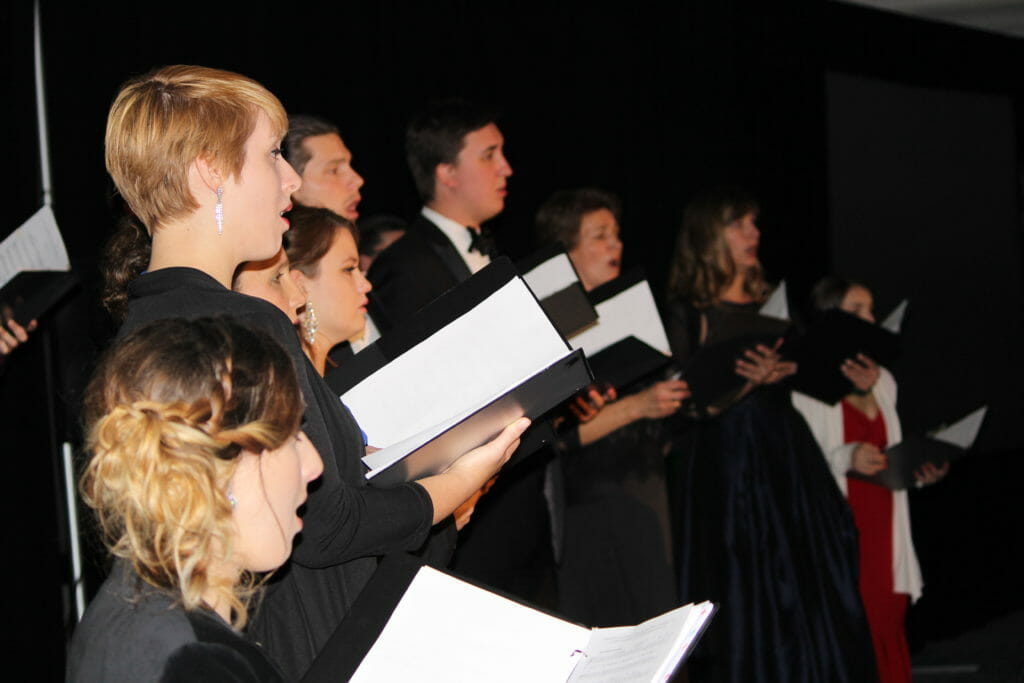
The audience was enthralled and could never tell that this performance resulted from so little rehearsing. Many of these singers honed their skills using PaTRAM’s training resources, so there is a lot to be proud of.
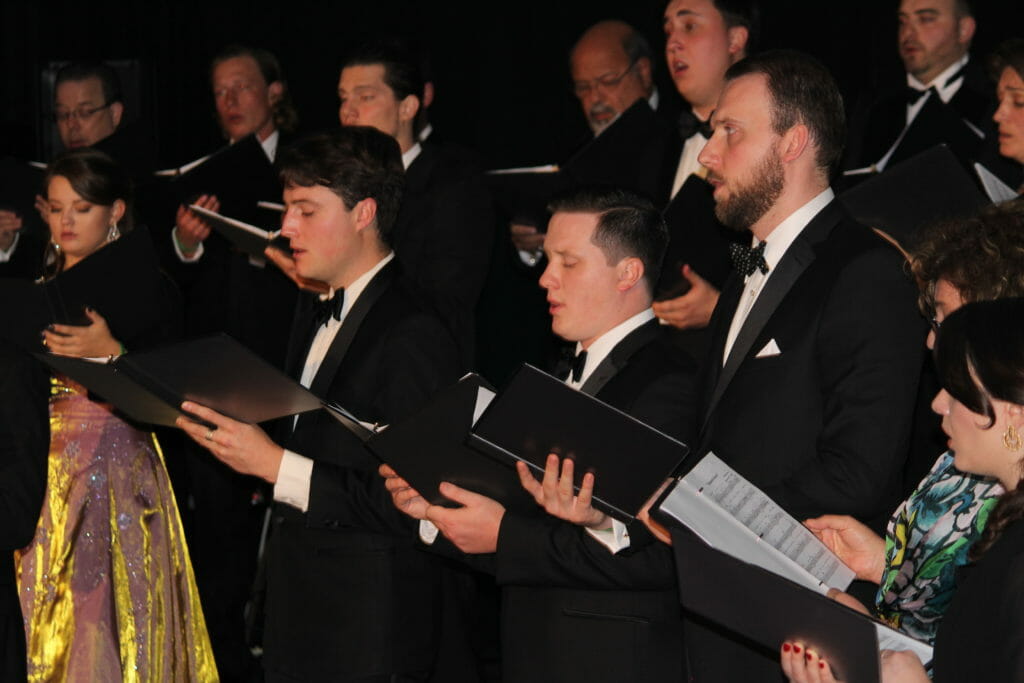
After the Choir’s performance, there was more dancing from Barynya and then came a performance by the VK dancers. This world-renowned dance troupe wowed the audience with their expert execution of tangos and other Latin-based ballroom dancing. VK clearly inspired the audience because their performance segued beautifully into the final stage of the evening, dancing!
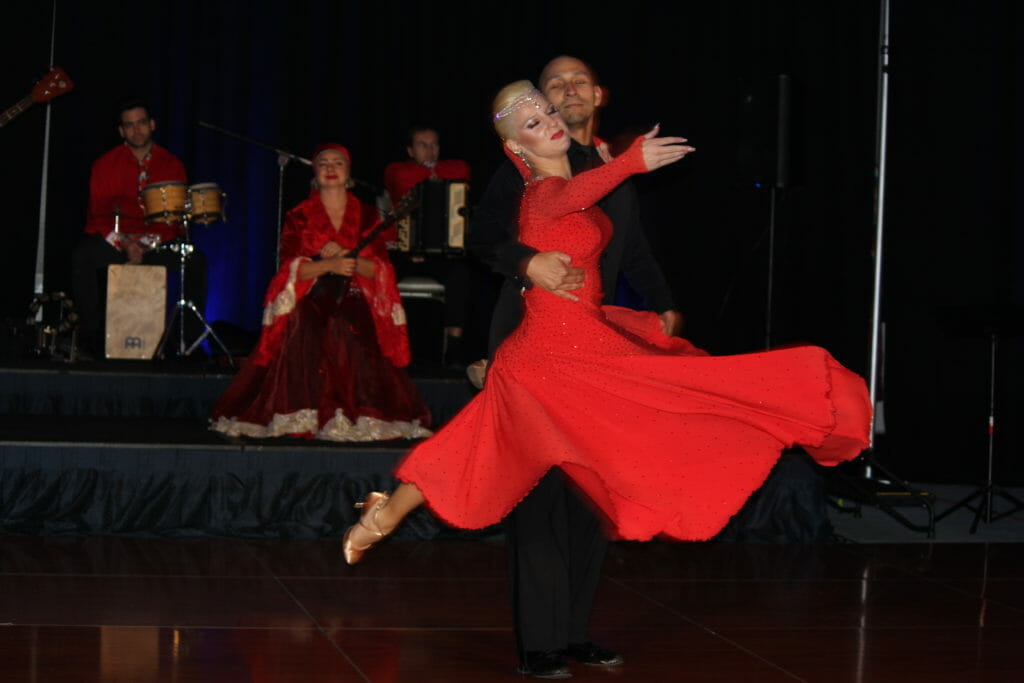
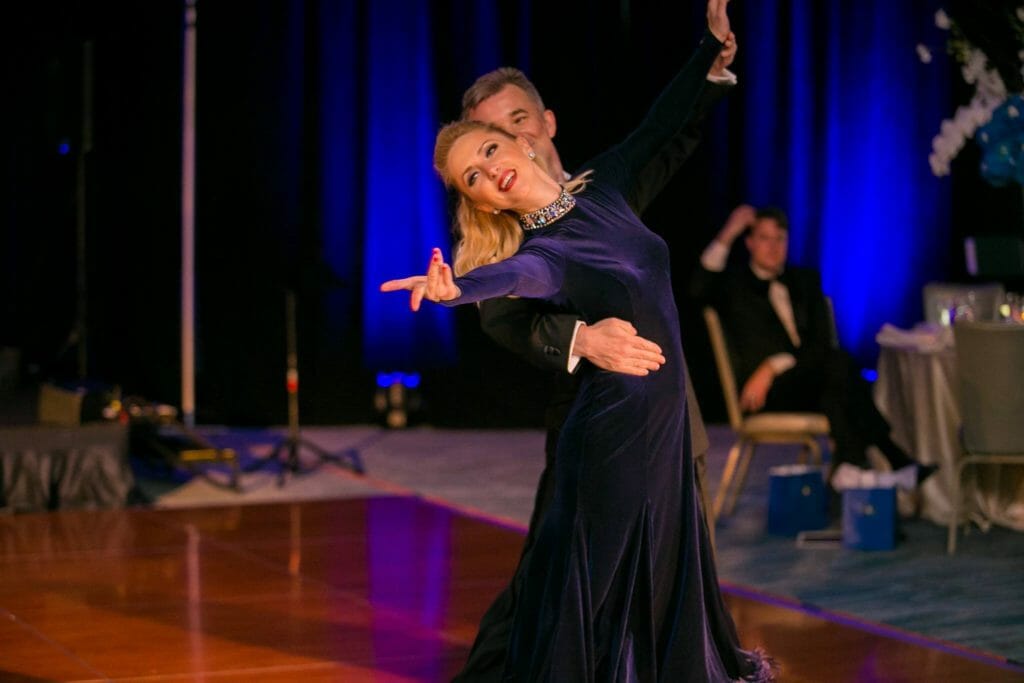
There were press reporters present from Miami Me Magazine, Voice of America(Miami) and other news outlets who did stories and interviews about the evening.
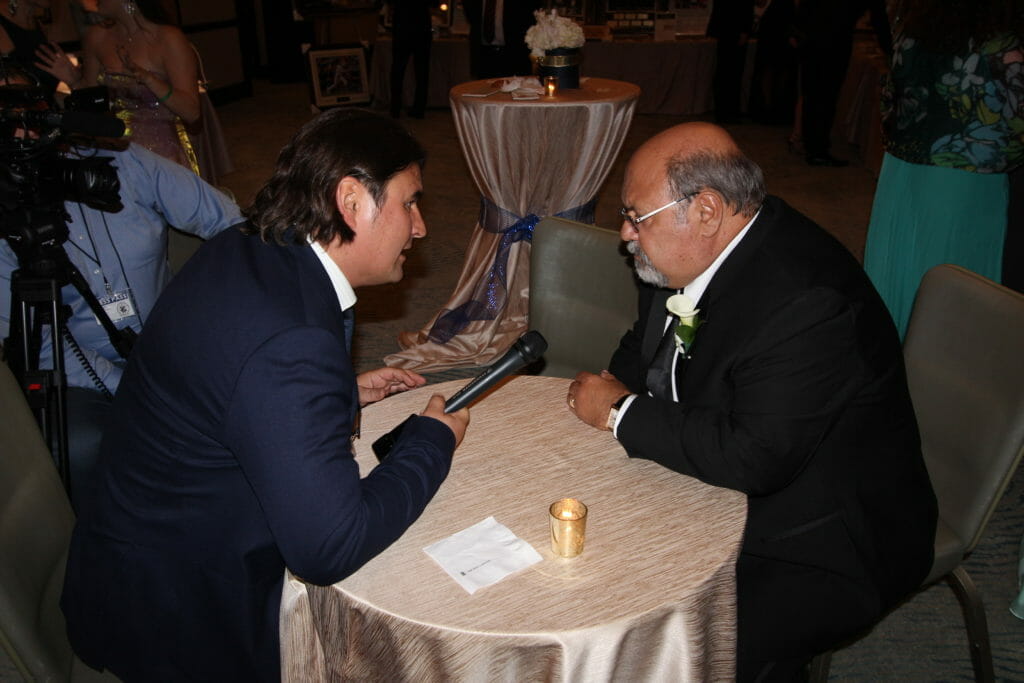
Photographers and videographers were recording the events throughout the night and the social networks were abuzz with commentary about the Ball.
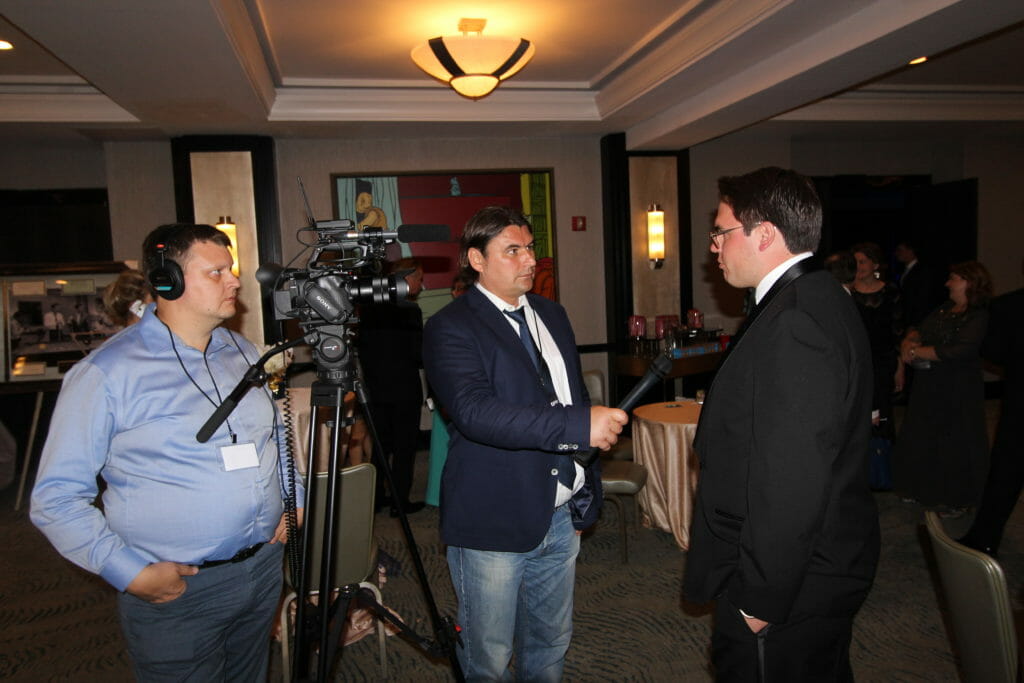
All in all, everyone who attended confirmed that the evening was exciting and fun. As Alex Lukianov had mentioned in one of his interviews, “mark November 10th, next year. The Miami Ball will be bigger and better!”
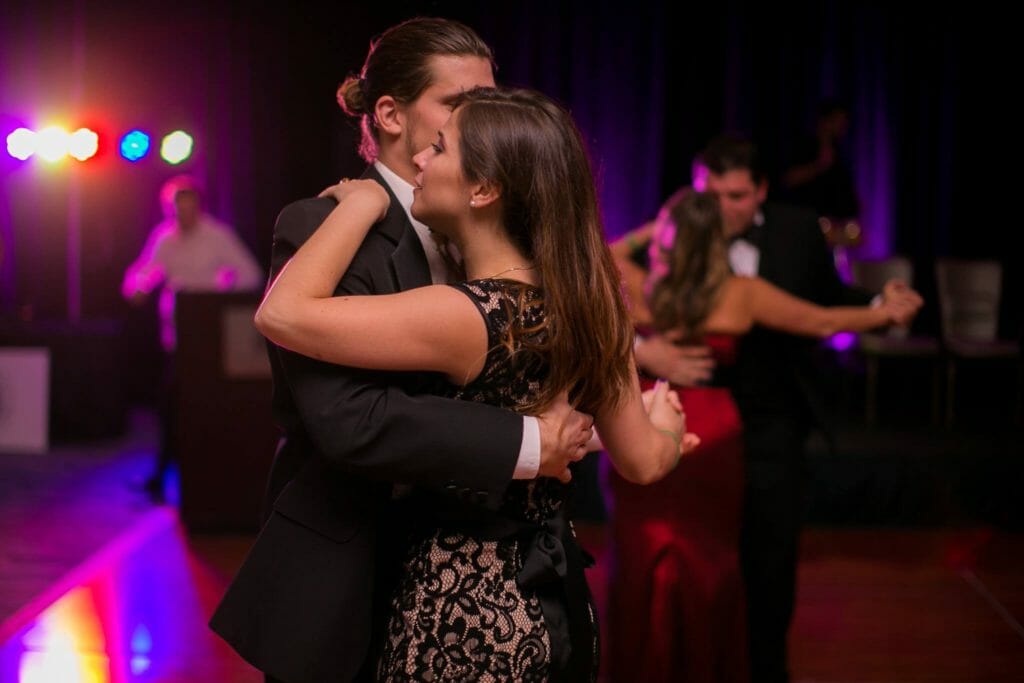
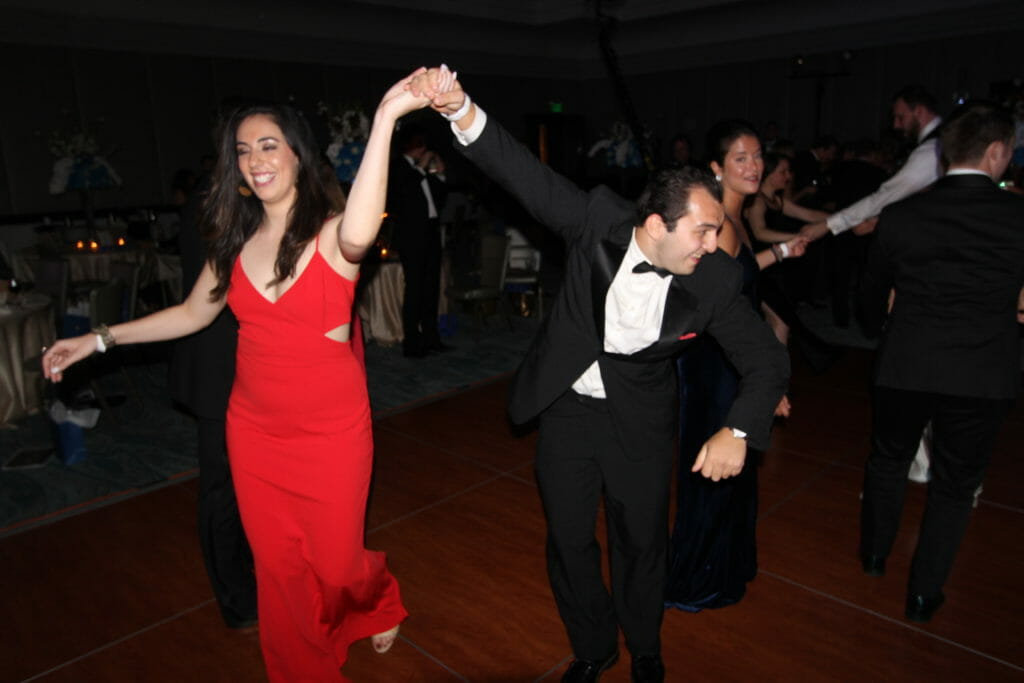
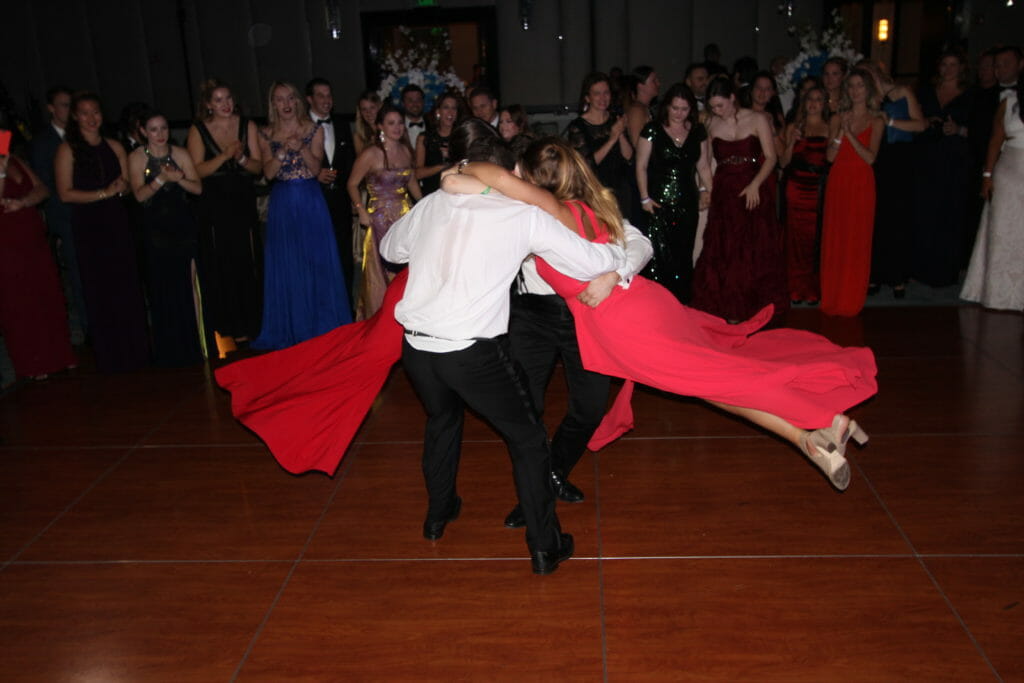
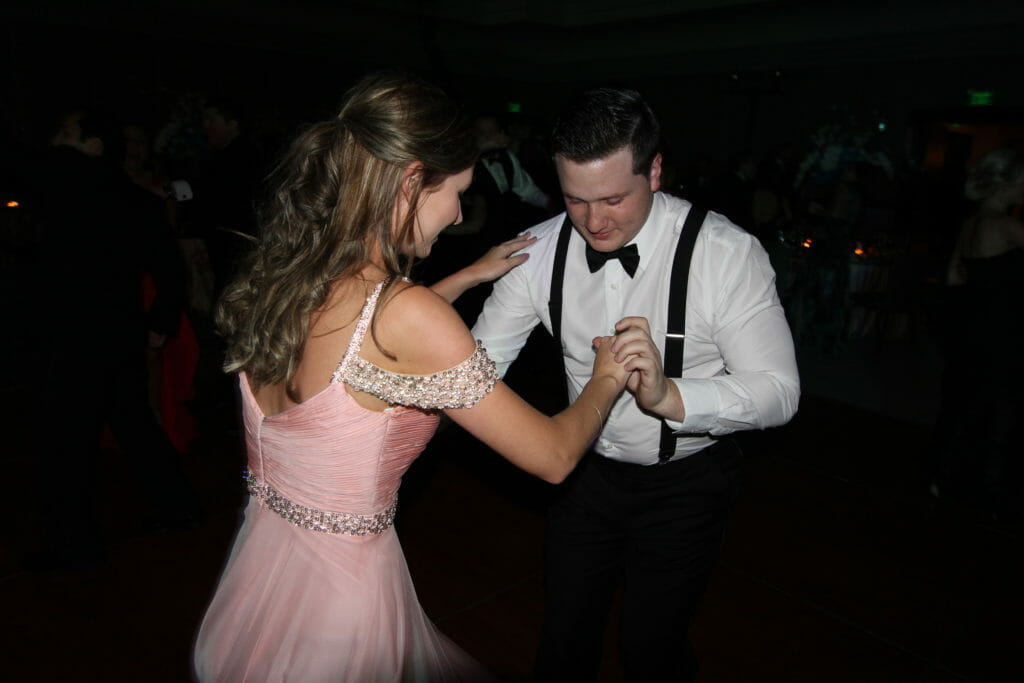
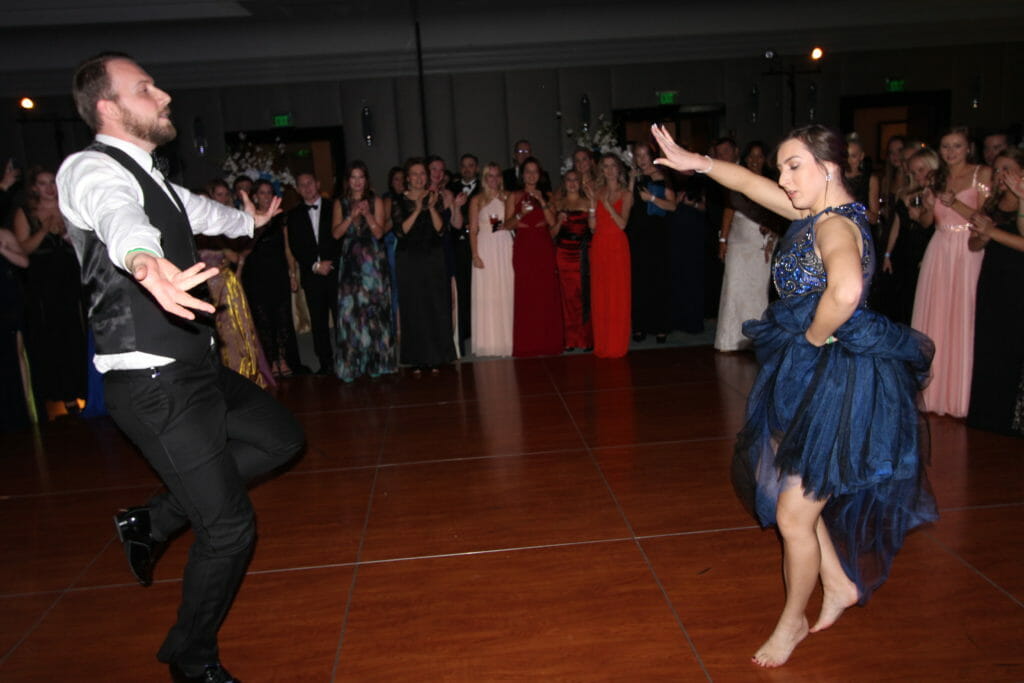 View the full album of the Miami Ball here.
View the full album of the Miami Ball here.
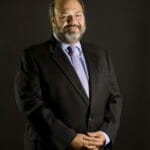
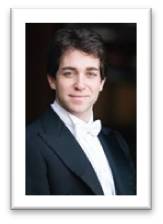
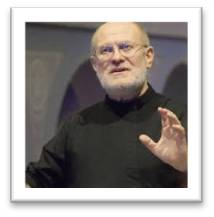
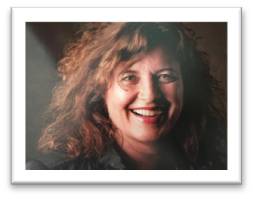
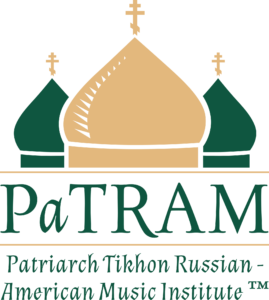
 The event was a fundraiser co-hosted by two non-profit organizations, the Patriarch Tikhon Russian-American Music Institute (PaTRAM) and the Prince Vladimir Youth Association (PVYA). Both organizations are deeply committed to our youth maintaining and expanding their cultural, artistic, philanthropic and religious interests.
The event was a fundraiser co-hosted by two non-profit organizations, the Patriarch Tikhon Russian-American Music Institute (PaTRAM) and the Prince Vladimir Youth Association (PVYA). Both organizations are deeply committed to our youth maintaining and expanding their cultural, artistic, philanthropic and religious interests.
 This black tie/evening gown affair featured cocktails, dinner, entertainment and dancing, was everything a night out could possibly provide. The Miami Ball was attended by almost 200 people including clergy from the local Orthodox parishes and His Grace, Bishop Nicholai of Manhattan.
This black tie/evening gown affair featured cocktails, dinner, entertainment and dancing, was everything a night out could possibly provide. The Miami Ball was attended by almost 200 people including clergy from the local Orthodox parishes and His Grace, Bishop Nicholai of Manhattan.



 Meanwhile, the remaining patrons assembled in the foyer of the Ballroom to enjoy their cocktails of vodka, other varieties of spirits, wine and beer. The wine, provided by another sponsor, Lot 18, was delicious and served a white blend called “Docheri”, meaning “daughters” in Russian, and even had the famous Russian nesting dolls on the label which really added to the Russian theme of the evening. Tsar Nicoulai provided caviar for this cocktail hour as well which was thoroughly enjoyed by everyone.
Meanwhile, the remaining patrons assembled in the foyer of the Ballroom to enjoy their cocktails of vodka, other varieties of spirits, wine and beer. The wine, provided by another sponsor, Lot 18, was delicious and served a white blend called “Docheri”, meaning “daughters” in Russian, and even had the famous Russian nesting dolls on the label which really added to the Russian theme of the evening. Tsar Nicoulai provided caviar for this cocktail hour as well which was thoroughly enjoyed by everyone.

 After everyone was seated, the Emcees introduced the two organizations and their histories. Once completed the entertainment began.
After everyone was seated, the Emcees introduced the two organizations and their histories. Once completed the entertainment began.
 After the arias, Bishop Nicholai led the room in prayer and gave his blessing before the meal. As the dinner continued so did the entertainment when the Barynya dancers took to the floor and gave a sensational performance of traditional Russian music and dance replete with traditional Russian costumes.
After the arias, Bishop Nicholai led the room in prayer and gave his blessing before the meal. As the dinner continued so did the entertainment when the Barynya dancers took to the floor and gave a sensational performance of traditional Russian music and dance replete with traditional Russian costumes.

 When the audience settled down from Barynya’s exciting dancing, the Emcees introduced another Miami Ball sponsor, Mr. Mark Pugachev, representing Pugachev Concierge Services. This generous sponsor contributed a door prize of a day’s outing for four on a 70-foot yacht (valued at $7000). Mr. Pugachev was asked to pick a table number out of a hat. The chair at the winning table, denoted by a red dot placed on the back of one chair, was Table 6. The lucky chair belonged to Irina Jermihov to whom Mr. Pugachev presented the prize.
When the audience settled down from Barynya’s exciting dancing, the Emcees introduced another Miami Ball sponsor, Mr. Mark Pugachev, representing Pugachev Concierge Services. This generous sponsor contributed a door prize of a day’s outing for four on a 70-foot yacht (valued at $7000). Mr. Pugachev was asked to pick a table number out of a hat. The chair at the winning table, denoted by a red dot placed on the back of one chair, was Table 6. The lucky chair belonged to Irina Jermihov to whom Mr. Pugachev presented the prize.


 Before joining the Choir as an octavist, Mr. Lukianov introduced Dr. Peter Jermihov, the conductor of the Choir. Maestro Jermihov led the choir through their repertoire with efficiency and grace.
Before joining the Choir as an octavist, Mr. Lukianov introduced Dr. Peter Jermihov, the conductor of the Choir. Maestro Jermihov led the choir through their repertoire with efficiency and grace. The musical depth of the choir was obvious and the sound clear and bright. Soloists, Fotina Naumenko (soprano) and Pavel Roudenko (bass), both sang beautifully. But the most amazing thing about this Choir’s performance is that they had ONE single rehearsal together earlier that day. One!
The musical depth of the choir was obvious and the sound clear and bright. Soloists, Fotina Naumenko (soprano) and Pavel Roudenko (bass), both sang beautifully. But the most amazing thing about this Choir’s performance is that they had ONE single rehearsal together earlier that day. One!









